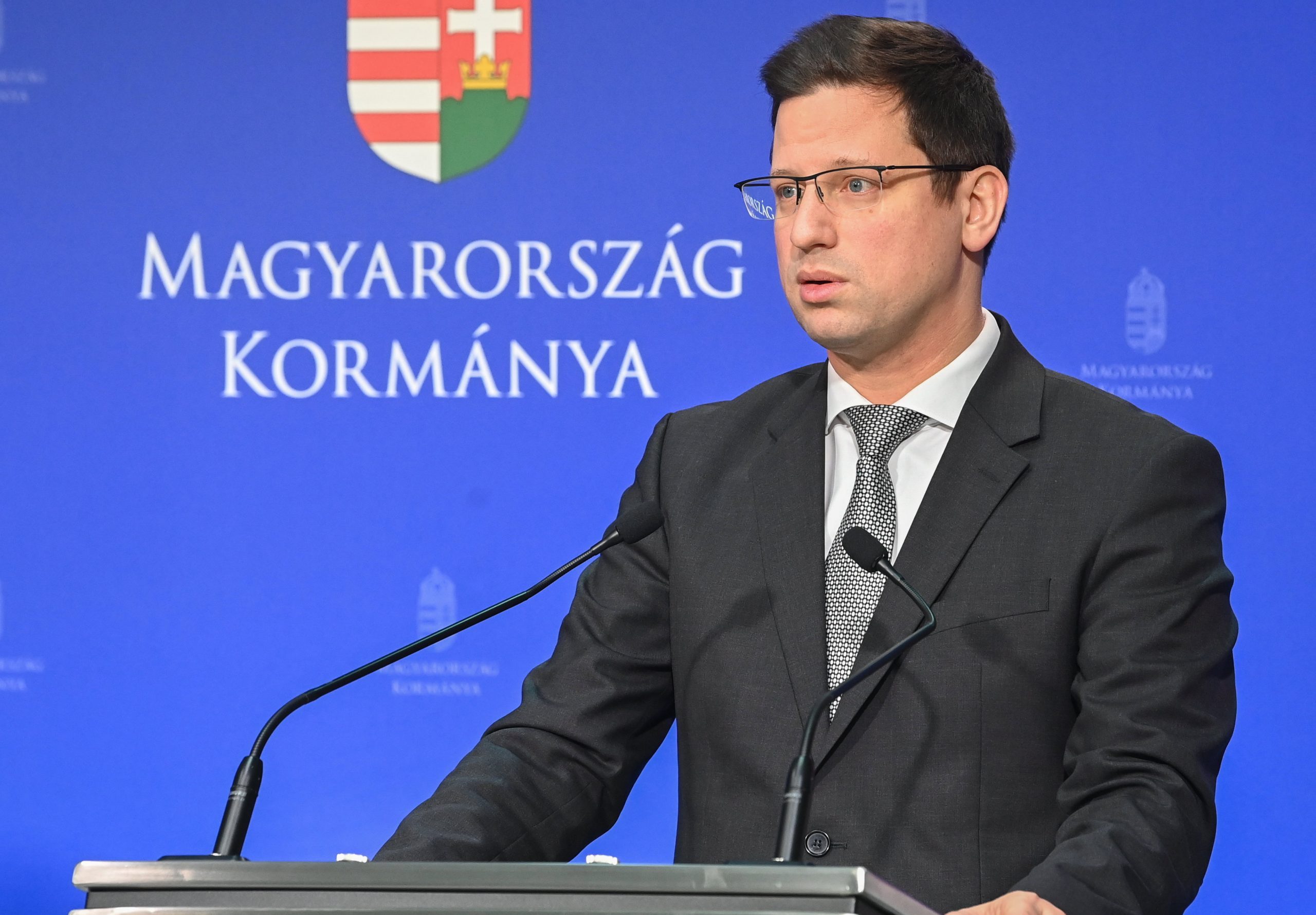
Although inflationary trends show some easing, an exceptionally tough year lies ahead of Hungarian consumers.Continue reading

On Thursday, the government briefed the public on the latest political and economic developments during the Government Info meeting. Gergely Gulyás, the minister heading the Prime Minister’s Office, spoke about the expected development of gas prices, inflation, and the latest government loan program, among other topics.
Gulyás Gergely said that gas storage levels are now high, but gas prices are forecast to rise again. He stressed that this could be prevented if a ceasefire and peace talks about the war in Ukraine were implemented as soon as possible. He added, however, that the government could still guarantee lower electricity, gas, and district heating prices for the population throughout the year, protected by the utility cost reduction, and they plan to keep this up next year as well.
On Thursday, Prime Minister Viktor Orbán announced that Hungary would build gas-fired power plants.
In relation to that, Gulyás said that one of the energy minister’s objectives was to ensure that the country’s energy supply would be secured to the greatest extent possible from domestic sources, and that gas power plants could be built quickly, although this would still take two to three years.
The minister also said that it was probably safe to say, based on data released yesterday by the Central Statistics Office, that Hungary was past the peak of inflation. He added that the correct identification of the causes of inflation will also affect the quality and success of the treatment. He said that much of the inflation is linked to external causes, such as rising energy prices, but that now, despite falling energy prices, shops are not cutting prices.
Gulyás stressed that action is needed, and the government has made decisions, since the target of bringing inflation below 10% by December remains unchanged. He added that the responsibility for inflation lies squarely with the Central Bank, adding that there is regular communication between the prime minister and the Governor of the Central Bank.
Gulyás also spoke about the Gábor Baross Program, under which the government has increased the amount of corporate loans from HUF 300 billion (EUR 791 million) to HUF 1,000 billion (EUR 2.6 billion).
Speaking about the windfall taxes, the minister said that it is fair that companies with high profits also contribute to the functioning of the economy.
However, he added that where they could, they would abolish this kind of tax next year.
In response to a question, Gulyás said that a court ruling on the Child Protection Act could be possible next year. Regarding EU funds, he said he was not giving up on common sense winning the day in Brussels, but added that they would not make the amendment of the law conditional on an EU court ruling on the previous amendment. On the European Union, the funding of the Erasmus program was also raised, and the minister said he considered the freezing of Erasmus funds as an anti-Hungarian revenge.
In Brussels, for some reason, they think that without any legitimacy, they can spend the money better than democratically elected governments,”
said Gulyás, who called this a philosophical problem. He believes that if all member states were given these funds to use for specific purposes such as economic recovery, economic development, or temporary financing of teacher pay increases, the EU would be much better off, and most member states would use them more efficiently.
On Swedish and Finnish NATO membership, he said that NATO is not only a defense alliance, but also a community of values. That is why the Hungarian government is right to think that if the Finns and Swedes disagree with them on many things, they should discuss these things when they ask for Hungarian support, Gulyás argued.
Featured photo via MTI/Máthé Zoltán